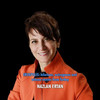The death of a three year old, child abuse and death penalty in Turkey
Some of Turkey’s fierce secularists like to portray child abuse - and its cover-up - as the practice of sects and conservative families, but this is not the case. Some cases make it to the press but more cases go unknown or hushed up within families.
After decades of work as a human rights activist and lawyer, Diyarbakır-born Sezgin Tanrıkulu is no stranger to rights abuses – with regards to both adults and children. Yet the picture he has drawn on the childrens’ rights in Turkey was a grim one, even for this seasoned human rights fighter.
Echoing parts of a report that was published by his party earlier this year, Tanrıkulu said that child abuse cases in courts had been multiplied by ten since 2006. The report, based on the Turkish Statistics Institute (TÜIK) yearly number of court decisions for child abuser rose from 2,337 in 2006 to 21,528 in 2018, hitting a total of 59,284 - 7,466 boys and 51, 818 girls. Tanrikulu pointed out that TUIK had removed those numbers from the site and disclosed no figures for 2019. “What is the government trying to hide?” he asked.
On Oct. 9 both mainstream and social media were shaken with the news of a three-years-old child, who died in a hospital in the central Anatolian city of Çorum, allegedly after being sexually abused by his mother and her boyfriend. “We are following the allegations that a three-old-year has died as a result of sexual abuse,” said CHP deputy Aylin Nazlıaka, tweeting that both the mother and the man she lived with were arrested. As the sad news became a trending topic with the hashtag #achildofthree, many users called for bringing back the death penalty - a common reflex whenever a high profile child abuse and rape case makes it to the headlines.
Tanrıkulu’s statement also comes in the wake of headline-making news on an Islamic cult leader accused of sexually abusing a 12-year old girl. Fatih Nurullah, the leader of the Uşşaki sect, was arrested on August 27 on charges of sexually assaulting a 12-year old girl. The Ussaki sect owns estates across Turkey and a network that includes nationwide and local politicians, most of whom have since taken off photos with Nurullah and other sect leaders off their websites. Fatih Nurullah, whose real name is Eyüp Fatih Şağban, is a 58-year old former wrestler who was forced to join the sect by his father but rose to its top ranks. A bigamist, he is reported to have a past record of child abuse. Shortly after the news of the abuse came out, a court in Sakarya, where the assault was committed, placed a broadcast ban on a recording in which Sagban allegedly admitted the sexual assault and said that the girl’s virginity was “intact.”
News of child molestation within religious sects has become common in Turkey - particularly after the 2016 shock of a child abuse scandal in a guesthouse in the central Anatolian town of Karaman. The guesthouse was run by the Ensar Foundation, which has close links to the Turkish government. Though the abuse of a dozen students by a teacher for several years caused public outrage, various government ministers defended Ensar. The foundation continues to function uunhinged and cooperates with official bodies to this day.
Some of Turkey’s fierce secularists like to portray child abuse - and its cover-up - as the practice of sects and conservative families, but this is not the case. In Menderes, a town near Izmir, an elementary school teacher abused his female students for years, by forcing them to watch porn or by touching them. It took 6 years, a determined fellow teacher called Saadet Özkan Efe who persuaded the kids to speak up and a huge gathering of women’s associations all across the country to get him before a court. The school - and even most of the parents - simply wanted to draw a line over the events, particularly after the man had retired. Eventually, he was sentenced to 82 years in jail.
Despite such cases that make it to press, more cases go unknown or hushed up within families. Reports indicate that child abuse - including sexual abuse – went up during the lockdown, according to Saadet Efe, who has founded her own civic group to fight child abuse. She said that in many cases, mothers noticed and reported cases of child abuse to the helpline, breaking the conspiracy of silence that traditionally prevails over incest and abuse cases.
In the past few years, many Turkish public figures have joined the campaign “Children keep quiet, you shouldn’t.” International organiations, cooperating with the Family and Social Affairs Ministry, put forward guidelines to educate children on sexual abuse in an age-appropriate way. Two years ago, the government briefly discussed chemical castration for child rapists - and members of parliament often give petitions to bring back death penalty for them. But preventive measures - such as educating children or launching nationwide sexual abuse awareness campaigns and training public officials – are still not widespread. And of course, measures to prevent early marriages or ensuring the punishment of those who marry underage girls remain elusive. As child abuse carries on, concealing figures appear to be a way of hiding the elephant in the room.

